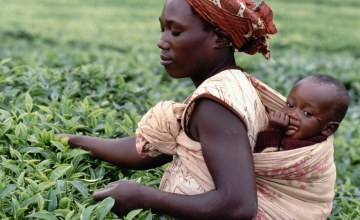If 50% percent of Africa’s population are women, then serious efforts need to get more African women into the mainstream economies. However insurmountable hindrances hurdle the path that would generally unlock the latent economic potential of African women. Access to reproductive rights remains a considerable bane for African women. There are three main sticking points in reproductive health which under insightful review would generally improve the life of women in Africa; these include rights to abortion, right to make choices on marriage, rights over contraception and methods, access and ownership of property by African women also remains a key sticking point.
For us to understand how in-depth reviews and policy changes on some of the aforementioned issues might pan out for Africa we need to look at them independently. Though issues that appertain to abortion normally carry the moral-religious baggage that accompanies such issues, we have to look at the contemporary issues that confront us and objectively make ratifications that would move our society forward. In Kenya for example reports indicate that around 310,00 abortions are carried out each year and around 21,000 women are admitted each year because of abortion related complication, usually conducted in backstreet clinics of which 2600 actually die of such complications. The report goes on to assert that around a third of treated cases are done in the third trimester which often jeopardizes the life of women.
Kenya’s case is not peculiar and there is an inherent need to re-examine the laws that would enable women to lawfully procure medical abortions in Africa in case the life of the mother is compromised. Kenya for its part has signed but not ratified the Maputo Protocol that seeks to create the right to medical abortion in cases of; danger to life, incest or rape. Although backstreet abortions continue to pose grievous danger to the women, policy makers in Africa have generally been impervious to reason and obstinately refused to remove punitive envelope bans on abortions. Consequently, women, especially teen girls have continued using crude methods and abortifacients, the peculiar Kenyan case of young girls using veterinary abortifaciants has been documented.
African women are a subjugated lot, and this is much more apparent when the issue of marriage is examined. In Africa more than any other place in the world girls; young girls are subjected to early marriages. FIDA-Kenyaargues that the right to contribute and to participate in ones community as a full member of society should not be conditioned on the price of human suffering. FIDA asserts that early marriages have placed young girls in an unjust position of having to jeopardize either their right to health and bodily integrity or the esteemed privilege of social acceptance. In Kenya for example, the female marriage ratio before the age of 18 is 21:1 in Mali the ratio is a dizzying 72:1.
The right to access, own and inherit property in Africa has for a long time remained a gulf between them and economic empowerment. Customary land and property registration requires a husband’s authorization for a woman to acquire a title independently. Single women and single mothers are obstructed from acquiring titles altogether.
Perhaps time is nigh for Africa to confront the structures and cultures of patriarchy that have been an impediment to Africa’s socio-economic development. Imagine for example the enormous potential that would be released if a sizable part of African women would be absorbed into a burgeoning middle class. Certainly an empowered female would mean a lot for an economy that had aspirations of being on an upward spiral. Certainly economically empowered women mean that a country is able to bring into the fray a consumer class which is in it a precursor for an economy that is ready for take-off.
Alex Ndungu Njeru is a columnist on the African Liberty Voice of Liberty project



